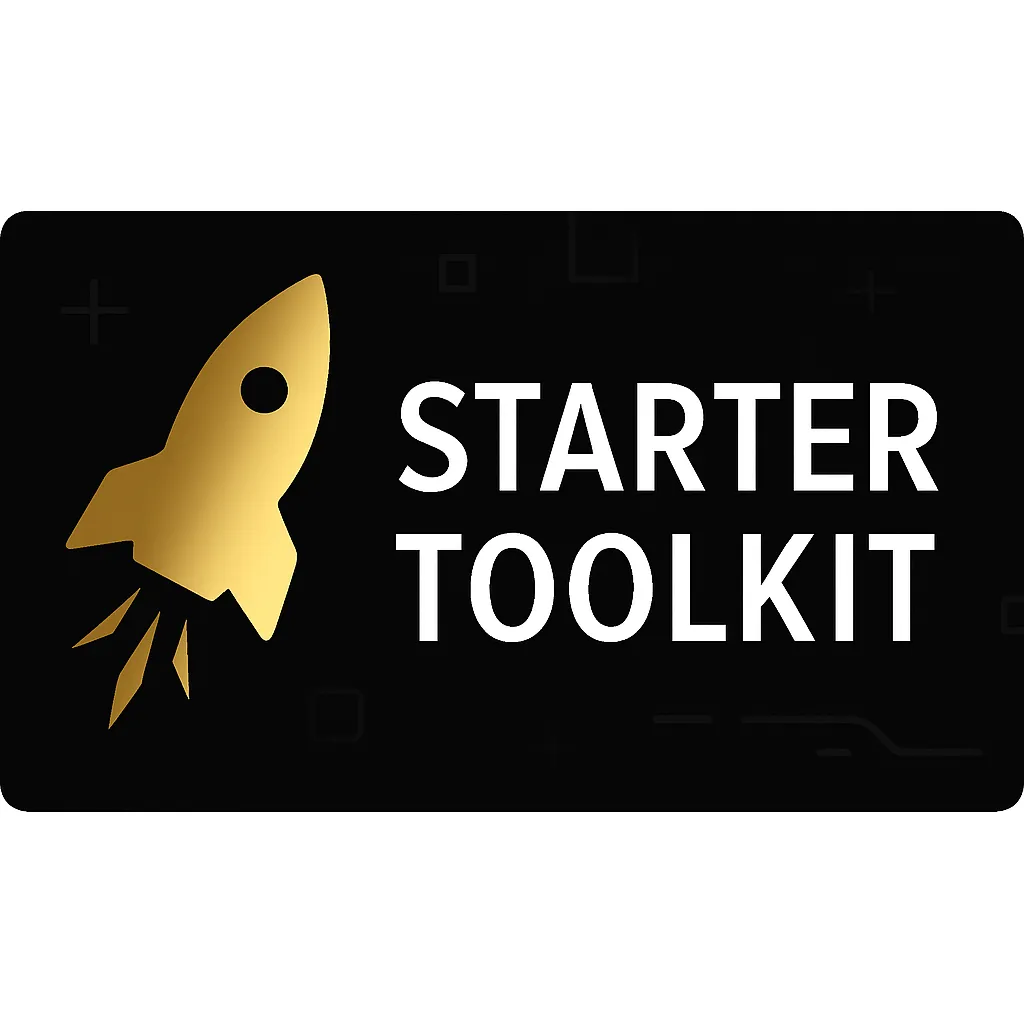Entrepreneurship: An Integrative Approach to Business Strategy and Innovation
Entrepreneurship isn’t just about starting a business — it’s about weaving together strategy, creativity, leadership, and resilience into a unified path forward. This article explores an integrative approach that helps entrepreneurs see the big picture, connect the dots, and build ventures that last. Discover how aligning mindset, opportunity, and execution can set your business apart.
What is the integrative approach in business and entrepreneurship?
This article explores entrepreneurship through an integrative lens, examining how it intersects with business strategy and innovation. We will delve into the core definitions of entrepreneurship, its pivotal role in economic growth, and the importance of adopting an integrative approach. Furthermore, the article provides a framework for entrepreneurs, students and business leaders who wish to learn how to successfully launch and grow their business.
Introduction to Entrepreneurship
Defining Entrepreneurship and Its Importance
Entrepreneurship is a dynamic and multifaceted process that is essential to economic development. It can be defined as a managing process where individuals capitalize on new opportunities and ideas. An entrepreneur is someone who is a visionary, a change agent, and a creative thinker, embodying a strong identity in their field. The entrepreneurial spirit involves individuals or organizations proactively hunting for opportunities, even without readily available resources. Entrepreneurship fuels economic growth through continuous innovation and knowledge application. It is also one of the basic resources to produce wealth and as a kind of stimulus for development in the world. The constant search for innovation and knowledge in the economy further underscores its vital importance for legal compliance and ethical standards. It is a mindset focused on identifying and solving problems, and in doing so, it creates value and opportunity through creativity and innovation.
The Role of Entrepreneurs in Economic Growth
Entrepreneurs are catalysts for economic growth, and their productive activities are a primary driver of that growth. Entrepreneurship stimulates innovation, creating new markets and industries that did not previously exist. This dynamic process generates employment opportunities, increases productivity, and boosts overall economic output. An entrepreneur fosters competition, driving existing businesses to innovate and become more efficient. The creation of new ventures and SMEs introduces fresh ideas and technologies into the market, leading to sustainable economic progress and a dynamic business environment. In essence, entrepreneurship transforms economies by turning challenges into opportunities and fostering a climate of continuous improvement. Entrepreneurship helps productivity and economic growth, and that’s why governments across the globe support it.

Understanding the Integrative Approach to Entrepreneurship
An integrative approach to entrepreneurship acknowledges the interconnectedness of entrepreneurship, strategic management, and innovation. This holistic perspective is crucial for sustained success in today’s competitive landscape and requires a commitment to integration and innovation. Viewing strategy and entrepreneurship as inseparable allows for the development of an entrepreneurial competitive strategy. The integrative approach merges strategic planning with entrepreneurial agility, allowing organizations to not only recognize opportunities but also to effectively craft and execute strategies to capitalize on them. It is a comprehensive framework that considers both the internal organizational structure and the external market dynamics, fostering a culture of innovation and proactive adaptation. This model is critical for developing sustainable competitive advantages in the face of rapidly changing market conditions and emerging challenges. In essence, an integrative approach to entrepreneurship bridges the gap between strategic vision and entrepreneurial action, creating a powerful synergy for growth and innovation.
Framework for an Integrated Approach
Components of an Integrated Entrepreneurship Model
A new entrepreneurship model is vital for success in today’s complex market. The knowledge-based entrepreneurship model emphasizes the synergy of knowledge and entrepreneurial activity to achieve a sustainable competitive advantage. Such a model fosters high efficiency, optimal use of knowledge, and the development of human capital within the organizational structure. This comprehensive model is especially relevant for SMEs seeking to grow and innovate. It’s an entrepreneurial approach that can drive fundamental changes in the entrepreneurial organization. By integrating innovation management with business strategy, firms can develop an integrated approach to entrepreneurship that creates value and drives long-term growth. The framework integrates strategic planning, innovation, and knowledge creation, providing a robust foundation for entrepreneurial ventures.
Strategies for Integrating Innovation in Business Ventures
Integrating innovation is crucial for business ventures seeking to grow and maintain a competitive advantage. An effective strategy for integrating innovation involves fostering a culture of entrepreneurship and continuous improvement within the organizational structure, enhancing its identity. It also includes supporting research and development, encouraging experimentation, and promoting collaboration between different teams. Innovation is essential to meet customer expectations and differentiate the brand from competitors. A comprehensive approach to innovation management enables firms to recognize new opportunities, develop innovative products and services, and validate their ideas in the market. An integrative approach to entrepreneurship considers innovation a core element of business strategy, leading to sustainable growth and long-term success.
Case Studies of Successful Integrated Approaches
Examining case studies of successful integrated approaches offers valuable insights into how firms can effectively integrate entrepreneurship and innovation. Knowledge-based entrepreneurship emphasizes the relationship between a knowledge-based economy and entrepreneurship in achieving competitive advantages. This synergy can foster high efficiency, optimization of knowledge and human capital, and the establishment of entrepreneurial organizations that emphasize corporate entrepreneurship. By analyzing these case studies, entrepreneurs can better understand the key components of an integrated approach and adapt them to their own business strategies. The case studies highlight the importance of leadership, strategic planning, and organizational culture in driving innovation and entrepreneurship. Furthermore, they showcase how successful firms effectively manage the challenges and complexities of integrating these two critical dimensions of business strategy. Understanding these success stories helps entrepreneurs launch, manage, and grow their own ventures more effectively and ethically.
Innovation Management in Entrepreneurship
The Relationship Between Entrepreneurship and Innovation
The intertwining of entrepreneurship and innovation is critical for sustained growth and success, as it drives the aim for continuous improvement.
Entrepreneurship acts as a catalyst for innovation, with entrepreneurs constantly seeking new ideas and opportunities to disrupt existing markets and create new ventures. This entrepreneurial spirit fuels the development of innovative products, services, and business models. Entrepreneurship and innovation are often conceptualized as the engine for economic growth and job creation, particularly through new firms and SMEs that prioritize creativity and innovation. An integrative approach to entrepreneurship emphasizes the importance of innovation as a core element of business strategy. The Global Entrepreneurship Monitor highlights the crucial role of innovation in fostering competitive advantage and driving economic development.
Entrepreneurs can leverage innovation to address critical challenges and meet the evolving needs of customers.
Strategies for Effective Innovation Management
Effective innovation management is essential for entrepreneurs seeking to create sustainable businesses. A comprehensive strategy involves fostering a culture of innovation within the organizational structure. Support for research and development, encouraging experimentation, and promoting collaboration between different teams are vital components. Knowledge networks and the knowledge transfer system are essential factors of innovative entrepreneurship success. An integrative approach to entrepreneurship recognizes the importance of integrating innovation management with overall business strategy. Firms should develop a clear framework for managing innovation, from idea generation to validation and implementation. Entrepreneurs can leverage knowledge networks and partnerships to access new ideas and technologies, enhancing their ability to innovate and grow. This integrated approach helps firms to not only recognize opportunities but also craft and execute strategies to capitalize on them.
Measuring the Impact of Innovation on Business Growth
Measuring the impact of innovation on business growth is crucial for demonstrating the value of innovation initiatives and informing future strategic planning. Innovation can be assessed using a variety of metrics, including new product sales, market share, and customer satisfaction.
The development of key performance indicators (KPIs) that directly link innovation to financial performance and market growth is essential. An integrated approach to entrepreneurship emphasizes the importance of tracking and analyzing the impact of innovation on overall business performance. The returns on innovation can be improved through the implementation of innovation management practices and processes. By understanding the impact of innovation, entrepreneurs can make informed decisions about resource allocation and strategic direction, driving sustainable business growth and competitive advantage. Measurement is essential to demonstrate how innovation translates into tangible business results such as growth.
Financial Strategies for Entrepreneurs
Understanding Financial Models in Integrated Entrepreneurship
Understanding financial models is crucial for entrepreneurs pursuing an integrated approach to entrepreneurship. A financial model serves as a roadmap, forecasting future financial performance and aiding in strategic decision-making. For new ventures and established SMEs alike, a well-crafted financial model can illuminate potential funding needs, evaluate the viability of different business strategies, and attract investors. The ability to accurately project revenue, expenses, and cash flow is essential for managing financial resources effectively and ensuring the sustainability of the business. An integrative approach to financial modeling considers the interconnectedness of different business functions and their impact on the financial position of the entrepreneurial venture. Integrating accurate financial models is a key aspect of the entrepreneurial process, enabling the company to grow.
Funding Innovations: Venture Capital and Other Sources
Funding innovation is often a significant challenge for entrepreneurs. Venture capital represents one of the most prominent sources of funding for high-growth, innovation-driven startups.
However, entrepreneurs should also explore other potential funding avenues, including angel investors, government grants, loans, and crowdfunding. Each source has its own advantages and disadvantages, and the optimal funding strategy will depend on the specific needs and characteristics of the business. It is imperative for entrepreneurs to develop a comprehensive funding plan that integrates diverse sources and aligns with the company’s overall strategic objectives. The ability to effectively attract and manage funding is a critical skill for entrepreneurial success, enabling firms to capitalize on market opportunities and fuel sustainable growth and innovation. Funding can also be used to develop business strategy.
Managing Financial Risks in Entrepreneurial Ventures
Managing financial risks is an integral component of successful entrepreneurial management. Entrepreneurs face numerous financial challenges, including market volatility, competition, and unexpected expenses. A proactive approach to risk management involves identifying potential threats, assessing their likelihood and impact, and developing strategies to mitigate them. Implementing robust financial controls, diversifying revenue streams, and maintaining adequate insurance coverage are essential steps. An integrative approach to entrepreneurship emphasizes the importance of incorporating risk management into the overall business strategy. By effectively managing financial risks, entrepreneurs can improve the financial stability and sustainability of their ventures, enhancing their long-term prospects for growth and success. Effective risk management is a critical element of good corporate governance.
Conclusion: The Future of Entrepreneurship
The Evolving Landscape of Entrepreneurship and Innovation
The landscape of entrepreneurship and innovation is in a constant state of flux, driven by technological advancements, globalization, and changing customer preferences in the business environment. As we move towards a knowledge-based economy, new opportunities for entrepreneurs will emerge.
The rapid pace of technological innovation is creating new markets and disrupting existing industries, creating both challenges and opportunities for entrepreneurs.
Entrepreneurs who can adapt to these changes, embrace new technologies, and develop innovative business models will be best positioned for success. Understanding the forces shaping the future of entrepreneurship is essential for strategic planning and decision-making, particularly in an institutional context. Knowledge networks and collaborations will play an increasingly important role in fostering innovation and driving entrepreneurial growth.
Embracing an Integrated Approach for Sustainable Growth
Embracing an integrated approach to entrepreneurship is crucial for achieving sustainable growth and long-term success in the go-to-market strategy. This model involves integrating the principles of innovation, strategic management, and financial planning to create a holistic and adaptive business strategy. By viewing these components as interconnected and interdependent, entrepreneurs can create a more resilient and sustainable business that reflects their corporate entrepreneurship ethos.
Such an integrative perspective can enhance organizational agility, enabling firms to adapt to changing market conditions and capitalize on emerging opportunities. It is by combining vision and execution that the company can launch new products or services, refine its operation and grow. This helps the organization place itself on the path to sustainable development. The integrative approach is key for any new venture that wishes to grow.
Final Thoughts on the Role of Entrepreneurs in Shaping Industries
Entrepreneurs play a pivotal role in shaping industries and driving economic progress. They are the innovators, the risk-takers, and the visionaries who challenge the status quo and create new markets.
Entrepreneurship is not just about starting a business; it’s about creating value, solving problems, and making a positive impact on society. As we move forward, entrepreneurs will continue to be the driving force behind innovation, economic growth, and social change. Their ability to adapt, innovate, and lead will be essential for navigating the challenges and opportunities of the 21st century. A well-designed business strategy will help any new venture grow. Ethical considerations are also of paramount importance to maintain legitimacy and customer trust.
The Entrepreneurship Essentials OER Textbook
Who This Resource Is For
First-generation college students
Working adults returning to school
Teachers and mentors looking for curriculum
Self-starters who want a roadmap
How to Use It in Classrooms, Accelerators, or on Your Own
This book can support:
Guided classroom lessons
Online learning platforms
Self-paced exploration
Business incubators and student pitch competitions
Every chapter includes practical tools, discussion prompts, and real-world case studies.
Start Your Journey with the Entrepreneurship Essentials OER Textbook
Small Call to Action Headline
The Entrepreneurship Essentials OER Textbook is just the beginning. The full Entrepreneurship Essentials curriculum offers:
Detailed chapters
Skill-building exercises
Ethical case studies
Pitch practice tools
Download the Free Entrepreneurship Essentials Textbook or View Online
Entrepreneurship Essentials Textbook
OER Entrepreneurship Essentials Textbook

How can I fund a small business without borrowing money?
Use bootstrapping, crowdfunding, and small business grants. These funding options offer support without requiring repayment or a stake in your company. Start by bootstrapping with services, pre-sales, or a simple MVP. Look into non-dilutive sources like grants, competitions, and crowdfunding platforms to build traction before seeking investors.

What is the best funding option for a business startup?
It depends on your business idea, stage, and funding needs. Traditional business loans may work for an established plan, while equity financing suits scalable ventures. There is no universal best way. Match your funding strategy to your business model, stage, and goals. Early-stage? Bootstrapping and crowdfunding. Scaling? VC or revenue-based financing.

Can I start a business without investors?
Absolutely. Many profitable companies never raise outside capital. Bootstrapping, small business loans, and pre-sales can fund early growth.

How do I pitch to investors effectively?
Tell a compelling story, validate traction with data, and clearly articulate your financials, growth strategy, and use of funds. Practice, refine, and lead with confidence.

Can I get startup financing from the Small Business Administration?
Yes. The SBA offers a range of traditional loans, microloans, and guarantees that can help fund a business.

What documents do I need to raise startup funding?
You’ll typically need a pitch deck, business plan or executive summary, 3-year financial projections, cap table (if applicable), and a one-pager or teaser for introductions.

How do I build a new business venture with small amounts of money?
Start with a detailed business plan. Use pre-sales, business competitions, and money from a large number of supporters through crowdfunding.

How do I run your business with full control while funding it?
Choose funding options that don’t dilute equity—such as revenue-based financing, grants, or borrowing money from friends and family (with terms).

Ready to take the first step?
Join Our COMMUNITY
We all have different paths to success, some have achieved it and some have just taken the first step.
True Entrepreneurship:
Creating Value For Others
Watson is a leading speaker on entrepreneurship and education. His motivational lectures on modern learning technologies, assessment, and the engaged learner experience have inspired today’s learner and challenged educators to update their approach to teaching.
Dr. Greg Watson is a serial entrepreneur and retired professor of entrepreneurship, academic researcher, and former director of the center for teaching and learning. As co-chair of the #5 ranked Entrepreneurship New Venture Development program – he lead a mentor team overseeing student entrepreneurial ventures from the ideation stage to value proposition to validation to launch. With an emphasis on the entrepreneurial mindset and entrepreneurial spirit Greg helps you discover that dream.
“You didn’t learn to ride a bike in a workshop” (Sandler) – finding the right entrepreneurial mentor, training, program or entrepreneurship course is often the difference between success and failure.

Copyright© 2025 Entrepreneurship Essentials. All Rights Reserved. Entrepreneurship Essentials is a service of Watson and Associates, INC,an Arizona corporation, 6615 S Lantana Vista Dr, Tucson, AZ 85756.













